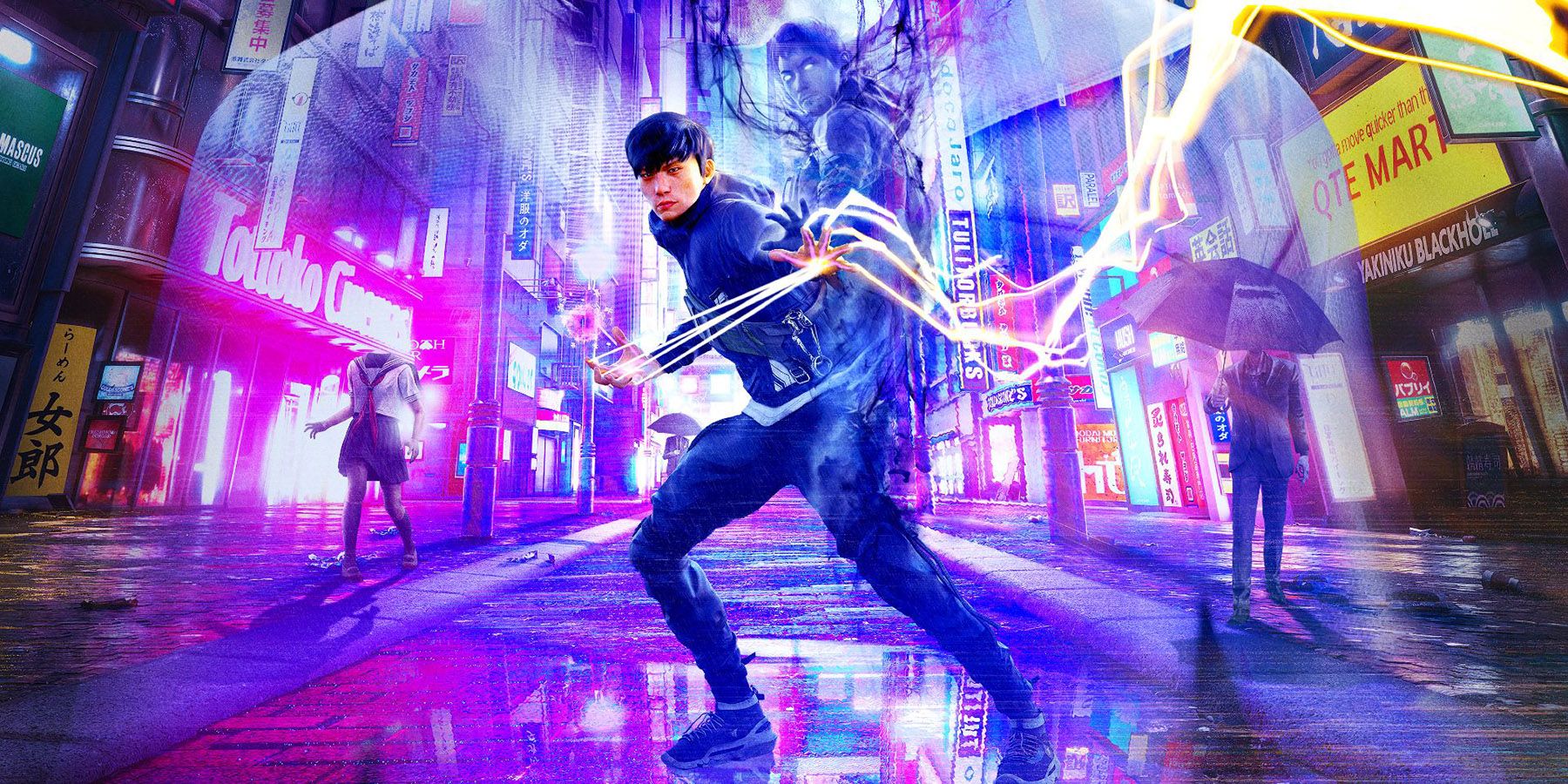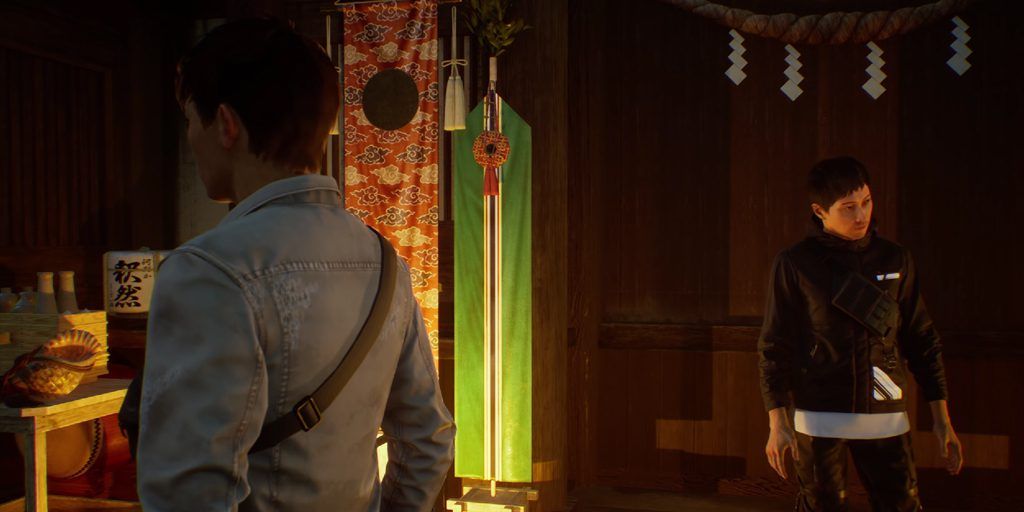Soon enough, players will be stepping into the shoes of Akito in Ghostwire: Tokyo. Players will find themselves in a beautiful recreation of Tokyo, but this Tokyo is being overwhelmed by the supernatural and consumed by a fog. The player, metaphorically speaking, isn’t the only inhabitant of Akito’s body, as right from the get-go, he is possessed by the spirit of KK, a former supernatural detective who is now without a body.
There’s a lot going on in Ghostwire: Tokyo's story. KK’s lost body seems to play a major role, based on our time with Ghostwire: Tokyo’s first two chapters, but the disappearance of the population, the unfolding mystery, and some very serious personal issues for Akito to handle too.
Throughout all of this, players will be a constant fly on the wall for Akito and KK’s interactions, as Akito isn’t too keen to have KK there at the onset. Game Rant recently spoke with Tango Gamework’s Ghostwire: Tokyo game director Kenji Kimura and producer Masato Kimura.
Without diving too much into spoiler territory, KK possesses Akito’s body out of desperate need, but Akito also needs KK. That doesn’t mean he’s happy about it, nor is KK a particularly easy person to get along with. It’s almost as if players are playing as two characters in one in Ghostwire: Tokyo, with there being a constant push and pull present in the dialogue. To this relationship, game director Kimura added….
"We have Akito, the normal kid, basically meets the mentor, KK, and because of that meeting, it changes his view on things and his values because of the differences in the backgrounds of KK and Akito. They have different thoughts about different things, which causes the usual pushing and pulling when two people meet and are kind of placed into a situation where they need to work with each other. When I look back on my personal experiences in my life, I think I've grown the most when I met somebody new, and so I wanted to kind of draw onto that into this story. So that, you know, we kind of feel like we are learning, and we are sometimes intentionally, sometimes unintentionally getting influenced by the people that we meet. And this is the story of how, you know, KK and Akito are going to go on this journey."
Producer Kimura also commented on the development of this story and how it takes the standard mentor-student relationship and flips it on its head. As he said,
"As a producer, when I look at the way things got developed in this game, the thing that's really interesting is [Kenji Kamura]'s approach and the creation of this story. It's not just the normal buddy story. The buddy is also a mentor, but this mentor is inside of you. You know, it's a slightly different take on you know cool things and the way [Kenji Kamura] was able to kind of put everything together and make a full you know experience out of it is really, really cool."
This isn’t just a lesson players will learn through the narrative, though. This growing, if begrudgingly, sense of reliance and need between Akito and KK translates to gameplay, in some terrifying ways. Akito’s defense against Ghostwire: Tokyo’s Visitors is KK’s power, and the only way KK can bring this to an end is Akito’s body. Thus, at least once in the story and probably more, Akito and KK get separated. Discussing this, director Kimura said...
I think getting along with other people in just even in normal life is a pretty hard, kind of difficult thing to do. Seeing eye to eye and communicating heart to heart is not a very easy thing to do. In this case, Akito doesn't really accept having KK in the very beginning. He doesn't really like his existence inside of him. He doesn't like the situation at all. But you know, because of that situation and circumstances within the story in chapter two, KK is separated from him. The desire from the creative standpoint is to allow the player to see the importance of having KK there. It was to make you feel like you actually miss having KK and also realize the strength that KK was allowing you to have.
Only playing as Akito limits the available gameplay features in Ghostwire: Tokyo and makes even the most basic Visitor all the more difficult—and terrifying. Akito needs KK, and through sections like this, players can feel that need too. Oftentimes, when a game strips away certain gameplay elements, it can come across as a cheap tactic. In Ghostwire: Tokyo, however, it weaves together the storytelling, the relationship between Akito and KK, and the gameplay to show how important this character dynamic truly is.
Akito and KK’s character dynamic is important and is woven together in a multitude of ways. Players will just have to wait for Ghostwire: Tokyo’s release to see how far the game truly pushes the boundaries of this relationship.
Ghostwire: Tokyo releases March 25, 2022, for PC and PS5.


